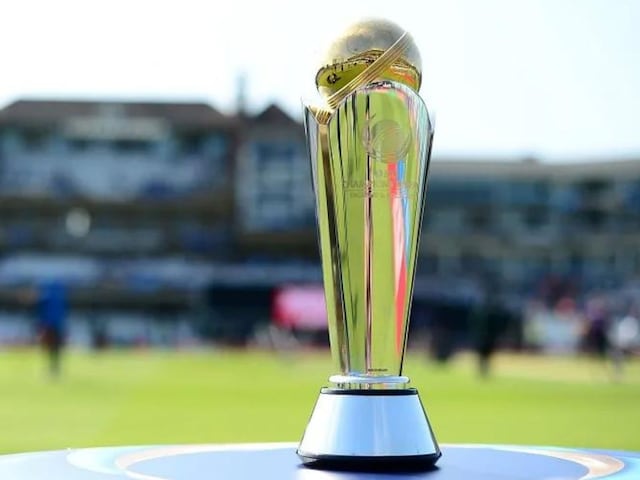The ICC Champions Trophy, often referred to as the "Mini World Cup," has a rich history as one of cricket's premier international tournaments. Here’s a detailed look at its origins, evolution, and significance in the world of cricket.
 |
### Origins and Inception
The Champions Trophy was first conceived by the International Cricket Council (ICC) as a way to spread the popularity of cricket and to raise funds for the development of the sport in non-test playing countries. The inaugural tournament, then known as the ICC KnockOut Tournament, was held in 1998 in Dhaka, Bangladesh.
### The Early Years (1998–2002)
- **1998**: The first edition of the tournament was a knock-out event, featuring all Test-playing nations at the time. South Africa emerged as the inaugural champions, defeating the West Indies in the final. The format was simple, with a straight knockout, giving every match a high-stakes feel.
- **2000**: The second edition took place in Nairobi, Kenya, with the same knockout format. New Zealand claimed their first major ICC trophy by beating India in a closely contested final. This victory marked a significant achievement for New Zealand cricket on the international stage.
- **2002**: The tournament was rebranded as the ICC Champions Trophy and was hosted in Sri Lanka. This edition introduced a round-robin format, followed by a knockout stage, allowing teams to play more matches. However, the final between India and Sri Lanka was washed out twice due to rain, resulting in the two teams sharing the trophy—a rare occurrence in cricket.
### Growing Popularity and Evolution (2004–2013)
- **2004**: The Champions Trophy moved to England, where the tournament saw a change in format with 12 teams participating, including the Test-playing nations and two qualifiers. West Indies won their first major trophy in over two decades, defeating England in a dramatic final at The Oval.
- **2006**: India hosted the 2006 edition, which saw Australia finally winning the Champions Trophy, adding to their dominance in world cricket during that period. They defeated the West Indies in the final, solidifying their status as the leading cricketing nation.
- **2009**: The tournament, scheduled for 2008 in Pakistan, was postponed and later moved to South Africa due to security concerns. The format was streamlined to feature only the top eight Test teams, and Australia successfully defended their title by defeating New Zealand in the final.
- **2013**: The Champions Trophy returned to England and Wales, marking the final time it was held as a standalone event. India emerged as the champions, defeating England in a rain-affected final at Edgbaston. This victory was particularly significant for India, as it completed their set of ICC trophies under captain MS Dhoni.
### The Modern Era and Revival (2017 Onwards)
- **2017**: After a hiatus, the ICC revived the Champions Trophy, again held in England and Wales. This edition was memorable for Pakistan's stunning victory, as they defeated arch-rivals India in the final. This win was celebrated across Pakistan and marked a major comeback for their cricket team on the global stage.
- **Future Prospects**: After the 2017 edition, the ICC announced that the Champions Trophy would be replaced by the ICC World Test Championship in the calendar. However, the success and popularity of the Champions Trophy have led to discussions about its possible revival in future ICC event cycles.
### Significance and Legacy
The ICC Champions Trophy has always been seen as a prestigious tournament, second only to the ICC Cricket World Cup in importance. It provided a platform for the top cricketing nations to compete in a shorter, high-pressure format. The tournament was known for its unpredictability, with several lower-ranked teams upsetting higher-ranked opponents.
The Champions Trophy also played a crucial role in the development of cricket in non-traditional cricketing nations, particularly during its early years when it was held in places like Kenya and Bangladesh.
### Memorable Moments
1. **2002 Final**: The unprecedented decision to share the trophy after the final was washed out twice between India and Sri Lanka.
2. **2004 Final**: West Indies' dramatic victory over England in the final, chasing down 218 with just two wickets in hand.
3. **2013 Final**: India's thrilling win over England in a rain-shortened match, which saw MS Dhoni become the first captain to win all major ICC trophies.
4. **2017 Final**: Pakistan's dominant performance against India, highlighted by a brilliant century from Fakhar Zaman and an outstanding spell of bowling from Mohammad Amir.
### Conclusion
The ICC Champions Trophy, with its rich history and legacy, holds a special place in the hearts of cricket fans around the world. Although its future remains uncertain, the tournament's impact on international cricket is undeniable. Whether it returns to the cricketing calendar or remains a cherished memory, the Champions Trophy will always be remembered for its thrilling matches, iconic moments, and the intense rivalries it fostered.



0 Comments